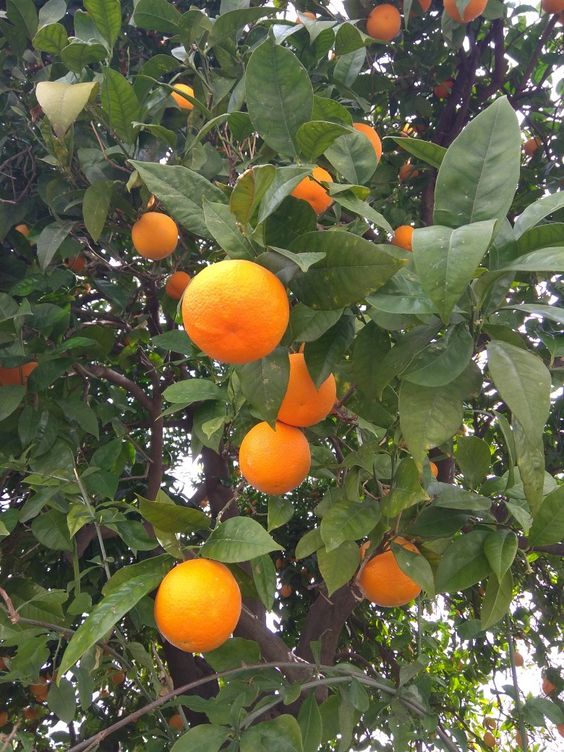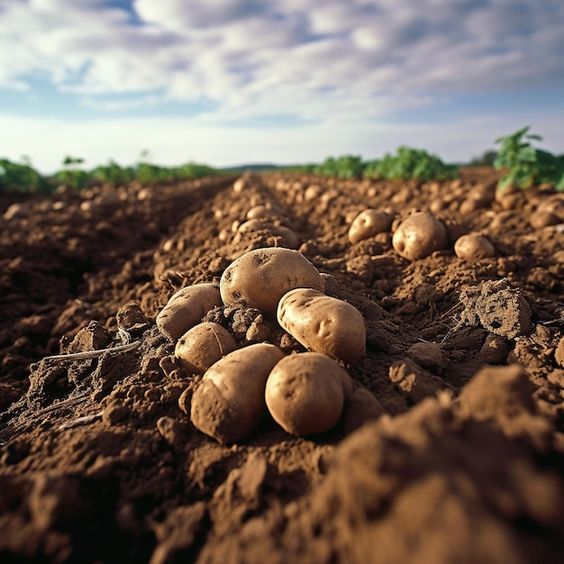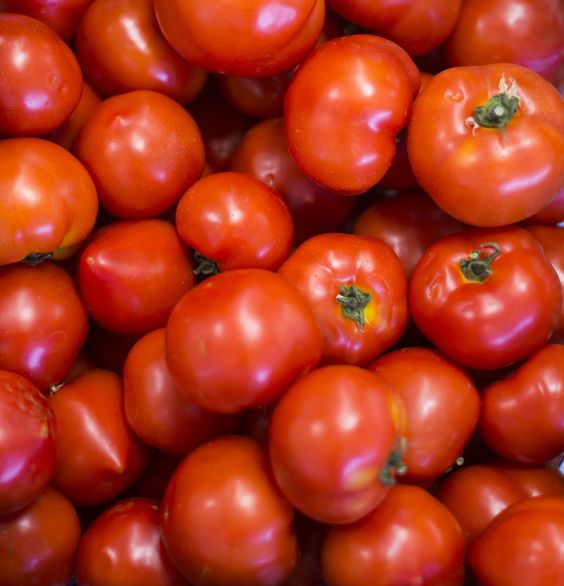Cultivating Orange Seedlings with Smart Agriculture: A Comprehensive Guide
Orange Seedlings,The cultivation of orange seedlings from seeds represents a promising venture for the agricultural sector. With the integration of Smart Agriculture technologies, this process can be optimized to yield higher productivity, improved quality, and increased sustainability. Smart Agriculture, often synonymous with precision agriculture, involves the use of modern technologies such as the Internet of Things (IoT), data analytics, and automated systems to enhance farming practices. This article explores the journey of growing orange seedlings from seeds, emphasizing the role of Smart Agriculture in revolutionizing traditional methods.
Smart Agriculture is transforming the way farming is conducted by integrating advanced technological solutions to increase productivity, sustainability, and resource efficiency. It combines a wide range of tools and techniques that enhance agricultural practices by using data-driven insights and automation to optimize every aspect of farming. Key components of Smart Agriculture include:
- IoT (Internet of Things): IoT devices and sensors play a vital role in modern agriculture by continuously collecting data from the environment. These sensors monitor critical factors such as soil moisture levels, temperature, humidity, and light conditions. By gathering real-time data, farmers can make informed decisions about irrigation, fertilization, and other practices, ensuring that crops receive the exact amount of water and nutrients they need, minimizing waste and enhancing growth.
- Data Analytics: With the data collected from IoT devices, farmers can employ data analytics tools to derive valuable insights into crop health, growth patterns, and yield forecasts. Data analytics helps farmers understand the optimal conditions for plant growth, identify potential issues before they become severe, and predict trends. This information allows for better decision-making, such as when to plant, irrigate, or harvest, ultimately improving productivity and reducing costs.
- Automated Systems: Automation in agriculture has significantly reduced the need for manual labor, making farming more efficient and cost-effective. Automated irrigation systems ensure that crops receive precise amounts of water based on real-time data, eliminating over- or under-watering. Similarly, automated fertilization and pest control systems can apply the right inputs at the right time, enhancing crop yields and reducing environmental impacts.
- Remote Sensing: Drones and satellite imagery are used in Smart Agriculture to remotely monitor crop health, soil conditions, and overall field performance. This technology provides farmers with a bird’s-eye view of their fields, allowing them to spot issues such as pest infestations, nutrient deficiencies, or water stress early. Remote sensing helps optimize resource management by pinpointing exactly where attention is needed, resulting in better yields with fewer inputs.
- Machine Learning and AI: Artificial intelligence and machine learning are becoming integral to Smart Agriculture by predicting outcomes and suggesting improvements. AI-powered algorithms can analyze historical data to forecast weather patterns, crop performance, and potential risks. By using machine learning, farming practices can be continuously refined and optimized, leading to more resilient and productive agricultural systems.
Contents [hide]
- 1 Starting Orange Seedlings from Seeds
- 2 Implementing Smart Agriculture in Seedling Cultivation
- 3 Benefits of Using Smart Agriculture in Orange Seedling Cultivation
- 4 Objectives of Smart Agriculture in Orange Seedling Cultivation
- 5 Detailed Explanation of Smart Agriculture Technologies
- 6 Usefulness of Smart Agriculture in Orange Seedling Cultivation
- 7 Advantages of Smart Agriculture in the Agricultural Sector
- 8 Environmental Impact and Sustainability
Starting Orange Seedlings from Seeds
Starting orange seedlings from seeds is a rewarding process that requires attention to detail and patience. While oranges are often grown from grafted trees for faster fruit production, growing them from seeds can be a fun and educational experience. Below are the key steps involved in successfully starting orange seedlings from seeds:
- Seed Selection: The process begins with selecting high-quality seeds. It is crucial to choose seeds from healthy, ripe, and disease-free oranges. Look for seeds that are fully mature, firm, and plump, as they have a higher chance of germinating and growing into strong seedlings. Avoid seeds from oranges that show signs of disease or rot. For the best results, opt for organic oranges, as they are less likely to have been treated with chemicals that could inhibit germination.
- Seed Preparation: Once the seeds are selected, the next step is to prepare them for planting. First, wash the seeds thoroughly to remove any pulp or residue, which could lead to mold growth. After cleaning, soak the seeds in water for about 24 hours. This step helps soften the hard seed coat, which promotes faster and more successful germination. Some growers also recommend lightly scarifying the seed coat with sandpaper to help the process along. After soaking, the seeds are ready to be planted in a well-draining soil mix.
- Planting and Germination Conditions: Plant the seeds about half an inch deep in small pots or seed trays filled with a well-draining, sterile potting mix. Water the soil lightly after planting to ensure it is moist but not waterlogged. The seeds need a warm, humid environment to germinate. Covering the pots with plastic wrap or placing them in a greenhouse can help retain moisture and warmth. Ideally, the temperature should be kept between 70°F and 85°F (21°C – 29°C) for optimal germination. Depending on conditions, germination can take anywhere from two to six weeks. During this period, ensure the soil remains consistently moist but not too wet, as overly saturated soil can cause the seeds to rot.
- Transplanting Seedlings: After the seedlings have emerged and developed their first set of true leaves (the second set of leaves after the initial cotyledons), they are ready to be transplanted into larger pots or directly into the ground. If transplanting into the field, choose a sunny location with well-draining soil, and space the seedlings adequately to allow for future growth. Handle the young seedlings with care during transplanting to avoid damaging their delicate roots.

Implementing Smart Agriculture in Seedling Cultivation
Implementing Smart Agriculture in the cultivation of orange seedlings can revolutionize traditional farming practices by incorporating advanced technologies for better growth and efficiency. Smart Agriculture combines IoT (Internet of Things), data analytics, automation, and AI to optimize various aspects of farming, ensuring healthier seedlings and more sustainable production. Below are the key ways Smart Agriculture can enhance orange seedling cultivation:
- Soil Monitoring: One of the most critical factors for successful seedling cultivation is maintaining optimal soil conditions. Smart Agriculture uses IoT sensors to continuously monitor key soil parameters such as moisture content, temperature, pH levels, and nutrient concentrations. These sensors provide real-time data, enabling growers to understand the precise needs of the seedlings. For example, if the soil is too dry or lacks nutrients, farmers receive instant alerts, allowing them to make adjustments quickly. This constant monitoring helps avoid under- or over-watering and ensures seedlings receive the ideal environment for germination and early growth.
- Climate Control: For seedlings to thrive, maintaining consistent climate conditions is essential. Smart Agriculture integrates automated climate control systems that regulate temperature and humidity within greenhouses. These systems can be programmed to maintain the ideal conditions for orange seedlings, typically ranging from 70°F to 85°F (21°C to 29°C). Automated systems ensure that temperature fluctuations, which could harm the seedlings, are avoided. Additionally, climate control helps manage humidity levels, which are crucial for preventing disease and ensuring optimal seedling development. With such precision, the growth rate and overall health of the seedlings can be significantly improved.
- Water Management: Water is a vital resource in seedling cultivation, but over- or under-watering can negatively affect root development. Smart Agriculture utilizes precision irrigation systems that deliver the exact amount of water needed based on real-time soil moisture data. These systems reduce water waste by applying water only when and where it is necessary, promoting healthy root growth without the risk of drowning the young seedlings. By optimizing water usage, growers not only reduce costs but also conserve precious resources, making the cultivation process more sustainable.
- Nutrient Management: Proper nutrient management is crucial for growing strong, healthy seedlings. Smart Agriculture employs data analytics to assess soil nutrient levels and recommend the appropriate balance of fertilizers. Based on sensor data and historical trends, these systems can predict when nutrient levels are low and suggest the type and quantity of fertilizers needed. By ensuring that seedlings receive the right nutrients at the right time, farmers can promote robust growth and reduce the risk of nutrient deficiencies, which can stunt development.
- Pest and Disease Control: Pests and diseases pose significant risks to young seedlings, and early detection is vital for preventing widespread damage. Smart Agriculture uses AI-powered early detection systems to identify potential threats before they become severe. These systems analyze data from sensors, cameras, and other monitoring devices to detect signs of pests, diseases, or stress in seedlings. When a potential issue is identified, the system suggests timely interventions, such as the application of pesticides or adjustments in environmental conditions. This proactive approach not only protects the seedlings but also reduces the need for excessive chemical treatments, promoting more sustainable farming practices.
Benefits of Using Smart Agriculture in Orange Seedling Cultivation
Orange Seedlings,Adopting Smart Agriculture techniques offers numerous benefits:
- Increased Efficiency: Automated systems reduce the need for manual labor, saving time and effort.
- Higher Yields: Orange SeedlingsPrecision farming practices lead to healthier plants and higher fruit yields.
- Resource Conservation: Efficient use of water, fertilizers, and other resources minimizes waste and environmental impact.
- Better Quality: Orange Seedlings,Consistent monitoring and control result in uniform, high-quality seedlings.
- Sustainability: Smart Agriculture promotes sustainable farming practices, ensuring long-term viability.
Objectives of Smart Agriculture in Orange Seedling Cultivation
Orange Seedlings,The primary objectives of incorporating Smart Agriculture into orange seedling cultivation are:
- Optimize Growth Conditions: Ensure that seedlings have the best possible environment for growth.
- Maximize Yield: Orange Seedlings,Achieve the highest possible output from each plant.
- Reduce Costs: Orange Seedlings,Lower the costs associated with labor, water, and fertilizers.
- Enhance Quality: Orange Seedlings,Produce healthy, disease-free seedlings that result in high-quality fruit.
- Promote Sustainability: Orange Seedlings,Use resources efficiently and minimize environmental impact.
Detailed Explanation of Smart Agriculture Technologies
Orange Seedlings,To fully understand the impact of Smart Agriculture, it is important to delve into the specific technologies used:
- IoT Sensors: These devices collect real-time data on soil moisture, pH levels, temperature, and light intensity. This data helps farmers make informed decisions about irrigation, fertilization, and other crucial aspects of cultivation.
- Drones: Equipped with cameras and sensors, drones provide aerial views of the fields, helping to monitor plant health, detect diseases, and assess crop growth.
- Automated Irrigation Systems: These systems use sensor data to deliver precise amounts of water to the plants, ensuring optimal hydration without wastage.
- AI and Machine Learning: These technologies analyze data patterns to predict weather conditions, pest outbreaks, and crop performance. They can also provide recommendations for improving farming practices.
- Blockchain: Used for supply chain management, blockchain ensures transparency and traceability from seed to harvest, building consumer trust in the quality and origin of the produce.
Usefulness of Smart Agriculture in Orange Seedling Cultivation
Orange Seedlings Smart Agriculture proves immensely useful in several ways:
- Real-Time Monitoring: Continuous data collection allows for real-time monitoring of seedling health and growth conditions.
- Proactive Management: Early detection of issues such as nutrient deficiencies or pest infestations enables proactive management.
- Data-Driven Decisions: Farmers can make data-driven decisions that enhance productivity and reduce risks.
- Scalability: Smart Agriculture solutions are scalable, making them suitable for both small and large farming operations.
- Economic Benefits: Increased efficiency and yield translate into higher profits for farmers.
Advantages of Smart Agriculture in the Agricultural Sector
Orange Seedlings,The advantages of implementing Smart Agriculture are manifold:
- Precision: Accurate application of water, fertilizers, and pesticides ensures optimal plant growth.
- Cost Savings: Reduced resource usage and labor costs lead to significant savings.
- Environmental Protection: Minimizing the use of chemicals and conserving water helps protect the environment.
- Enhanced Productivity: Better management of resources and conditions results in higher productivity.
- Improved Traceability: Blockchain and other technologies ensure that the entire cultivation process is transparent and traceable.
Environmental Impact and Sustainability
Smart Agriculture contributes significantly to environmental sustainability in several ways:
- Water Conservation: Precision irrigation systems ensure that water is used efficiently, reducing wastage and conserving this vital resource.
- Reduced Chemical Use: Targeted application of fertilizers and pesticides minimizes the use of chemicals, reducing soil and water contamination.
- Energy Efficiency: Automated systems and renewable energy sources, such as solar-powered sensors, reduce the carbon footprint of farming operations.
- Biodiversity: Sustainable farming practices supported by Smart Agriculture help maintain biodiversity by preserving natural habitats and promoting crop diversity.
Orange Seedlings,The cultivation of orange seedlings from seeds can greatly benefit from the integration of Smart Agriculture technologies. By leveraging IoT, data analytics, automation, and other advanced tools, farmers can optimize growth conditions, enhance yield, reduce costs, and promote sustainability. As the agricultural sector continues to evolve, Smart Agriculture stands out as a key driver of innovation and efficiency, promising a brighter future for both farmers and consumers.




